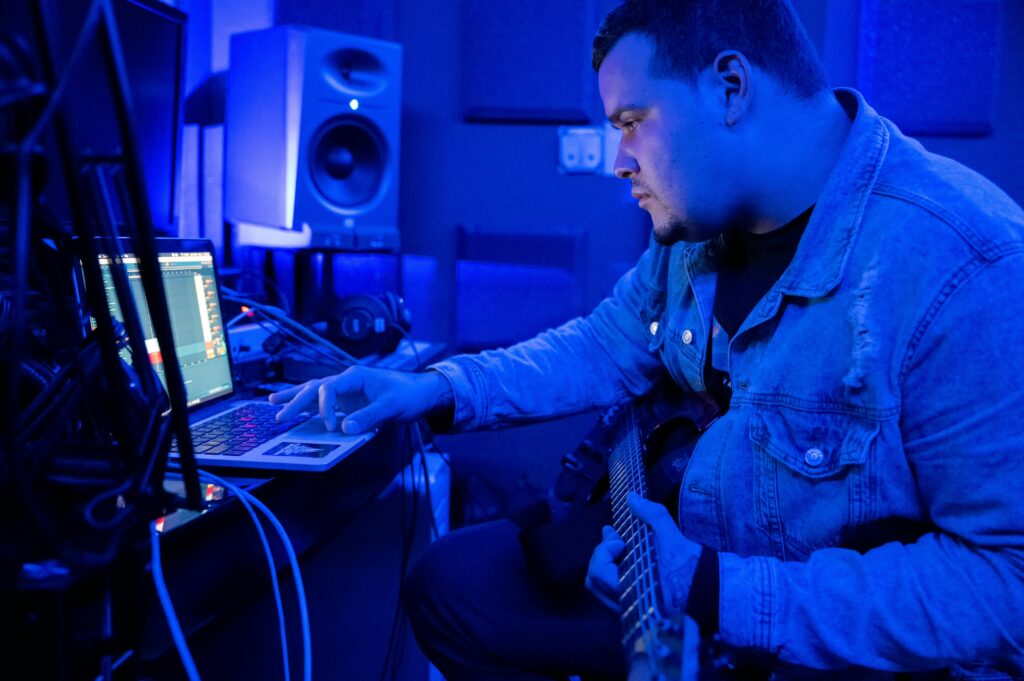1. Introduction to AI Music Creation
AI music creation uses algorithms and machine learning to compose music, generate lyrics, and even produce audio tracks. This technology opens up new avenues for musicians, producers, and enthusiasts to experiment and innovate in music production.
2. Popular AI Music Creation Tools
- Amper Music: An AI-driven platform for composing and producing music tracks.
- AIVA (Artificial Intelligence Virtual Artist): Designed to create classical and cinematic music.
- OpenAI’s MuseNet: A deep learning model that generates compositions across various genres.
3. Using Amper Music
- Sign Up: Visit Amper Music and create an account.
- Choose a Genre: Select a genre for your track (e.g., pop, rock, cinematic).
- Customize Your Track: Adjust parameters like mood, tempo, and instrumentation to shape your music.
- Generate Music: Click to create your track. Amper will produce a unique piece based on your selections.
- Edit and Download: You can make further edits, then download your final composition in high-quality audio formats.
4. Using AIVA
- Visit AIVA: Go to AIVA and sign up.
- Create a New Composition: Click to start a new project and select the type of music you want (e.g., orchestral, piano).
- Input Parameters: Define the length, style, and specific instruments for your composition.
- Generate the Composition: AIVA will produce a musical piece based on your input.
- Edit and Export: You can fine-tune the composition and export it as an audio file or MIDI for further editing.
5. Using OpenAI’s MuseNet
- Access MuseNet: Visit OpenAI’s MuseNet.
- Choose a Style: MuseNet allows you to select a genre and style (e.g., classical, jazz, pop).
- Input a Melody or Chords: You can either input your melody or let MuseNet generate one based on your chosen style.
- Generate Music: Click to create the composition. MuseNet will produce a piece based on your selections.
- Download the Composition: Once generated, you can download the audio file for your use.
6. Tips for Effective AI Music Creation
- Experiment with Styles: Try different genres and styles to discover unique sounds.
- Collaborate with AI: Use AI-generated music as a base, then add your own elements to personalize the track.
- Adjust Parameters: Play with various settings to fine-tune the mood and instrumentation of your composition.
- Incorporate Lyrics: Consider using AI tools for lyric generation (like OpenAI’s GPT-3) to complement your music.
7. Ethical Considerations
- Copyright Issues: Understand the licensing terms for any AI-generated music you use, especially for commercial purposes.
- Credit AI Contributions: If collaborating with AI, consider crediting the tool used in your final work.
Conclusion
AI music creation tools like Amper Music, AIVA, and OpenAI’s MuseNet provide innovative ways to compose and produce music. By leveraging these technologies, you can enhance your creative process and explore new musical landscapes. Start experimenting with these platforms to create your unique compositions!

